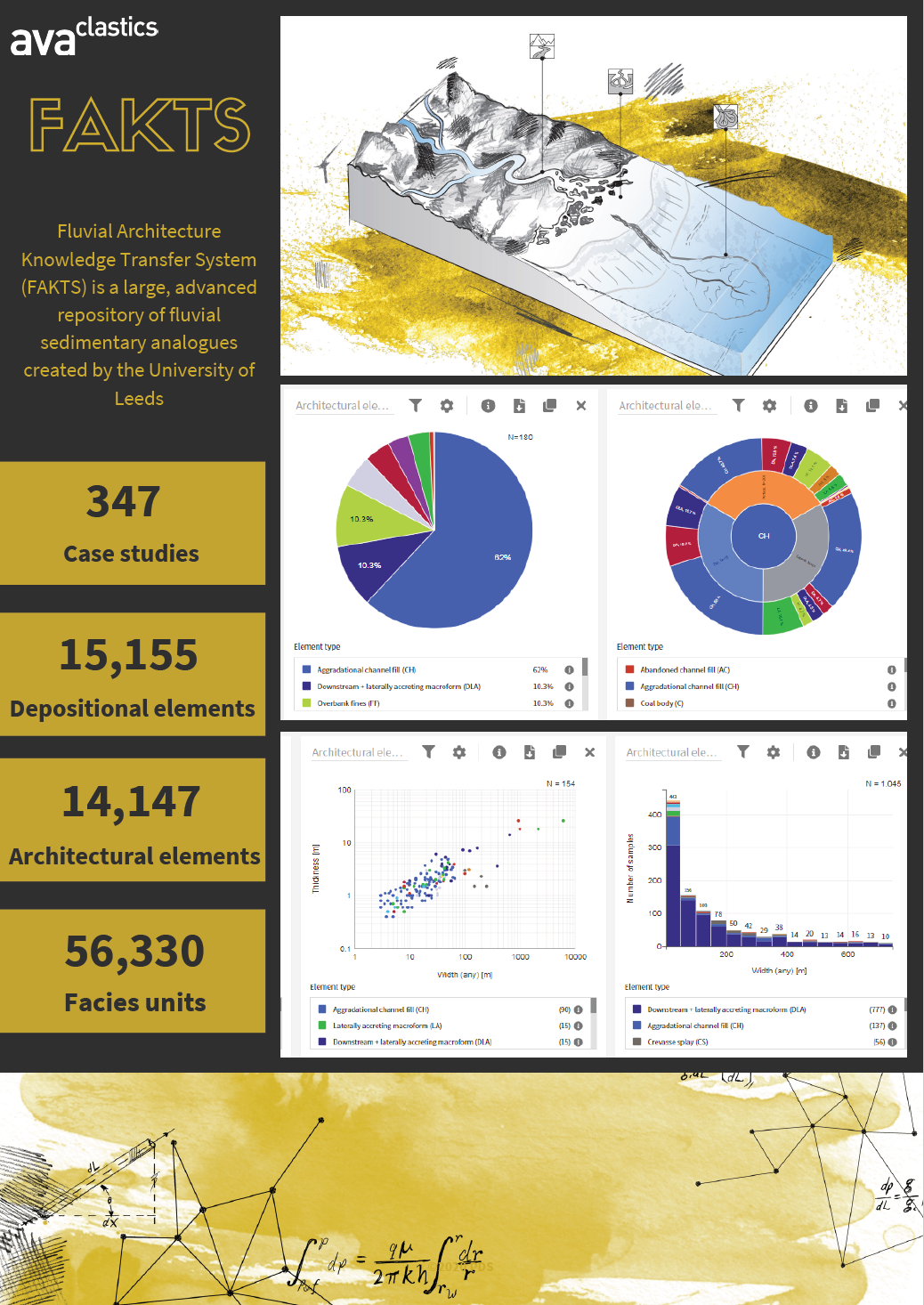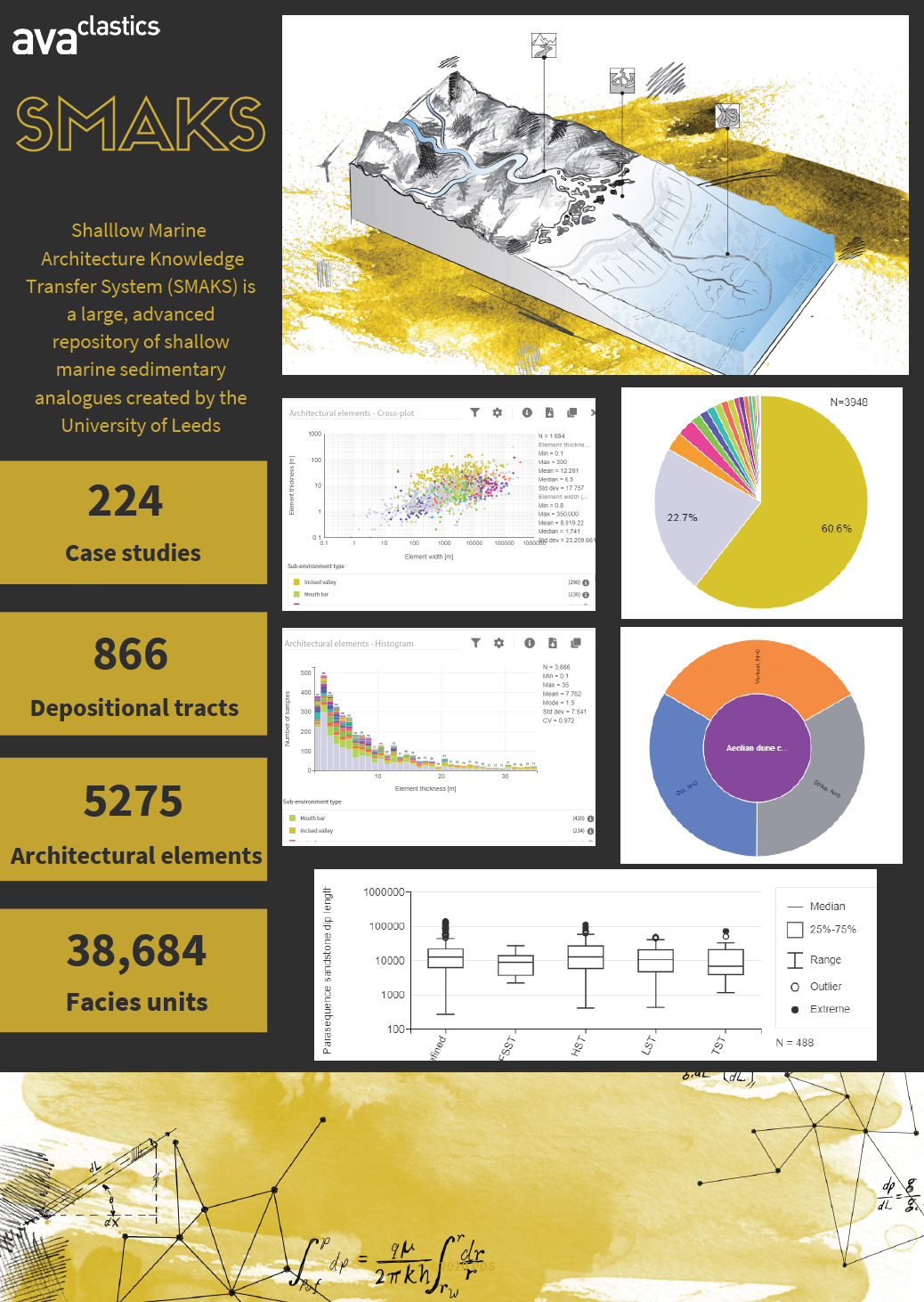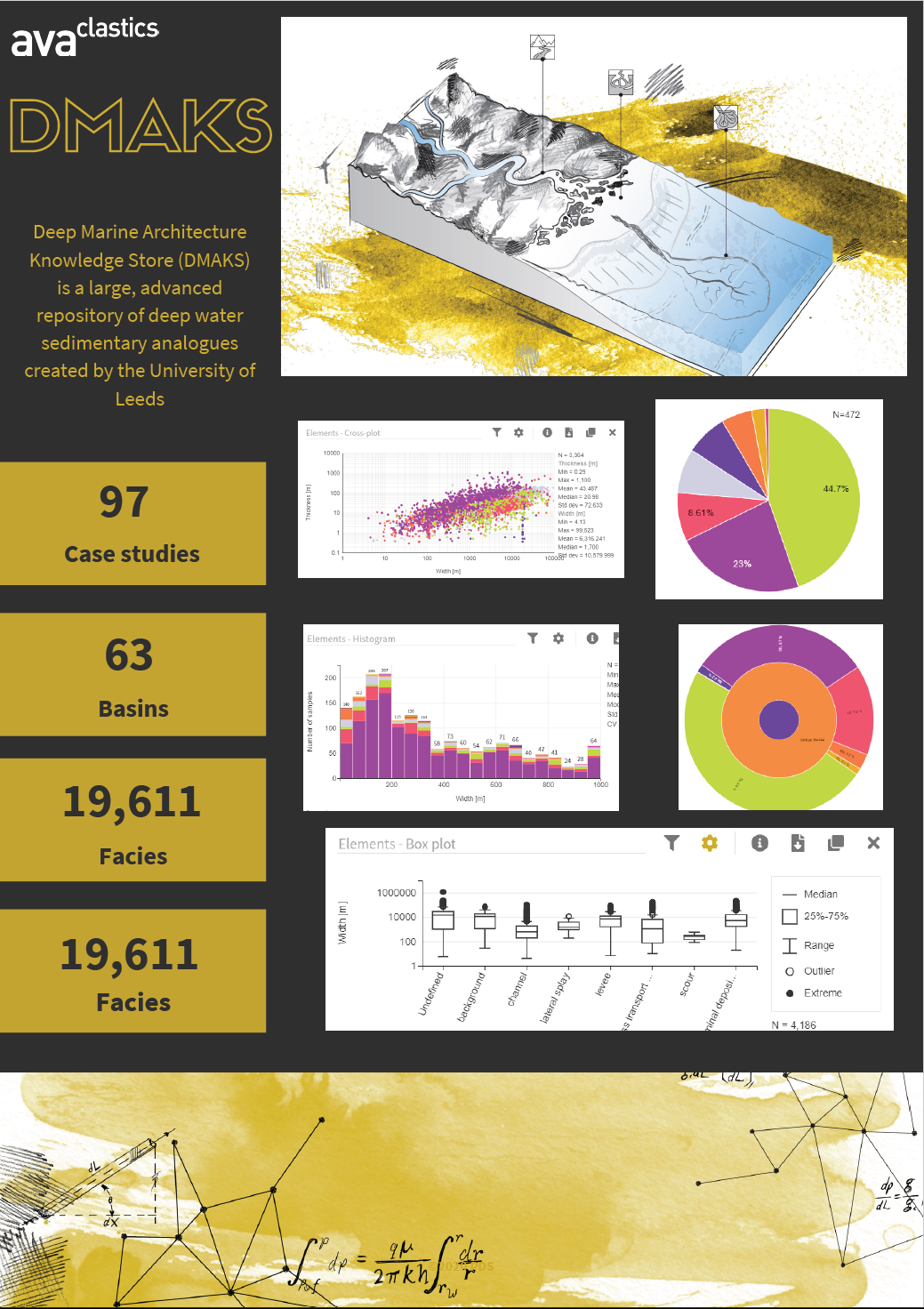World-Class Sedimentary Analogue Databases
Over 700 analogues now available in Ava Clastics
At the heart of Ava Clastics is a collection of world-class sedimentological analogue databases created by the University of Leeds. The databases incorporate information from both modern and ancient fluvial, shallow-marine and deep-marine successions considered to represent potential analogues to present-day hydrocarbon reservoirs.
Access to all three databases comes with Ava Clastics as standard.
Fluvial Architecture Knowledge Transfer System - FAKTS
A relational database storing hard and soft data of fluvial sedimentary architecture, populated with data from original fieldwork studies by the Fluvial Research Group (FRG) at the University of Leeds and peer-reviewed syntheses.
The database integrates information from both modern rivers and ancient outcrop examples, selected because they represent potential analogues to hydrocarbon reservoirs hosted in fluvial rocks.
The fluvial database is a research-led flagship initiative of the FRG.
Colombera L, Mountney NP, McCaffrey WD. 2012.A relational database for the digitization of fluvial architecture: Concepts and example applications. Petroleum Geoscience. 18 (1), 129-140 DOI http://dx.doi.org/10.1144/1354-079311-021


Shallow-Marine Architecture Knowledge Store - SMAKS
SMAKS is a relational database that integrates studies of outcrops, the subsurface and the modern seabed. It includes facies and architectural element information from modern and ancient outcrop examples, specifically selected because they are considered to represent potential analogues to hydrocarbon reservoirs hosted in shallow-marine rocks.
The Shallow-Marine Architecture Knowledge Store is a research-led flagship initiative of the Shallow-Marine Research Group (SMRG) at the University of Leeds. The data incorporated in the database is derived from both original SMRG fieldwork studies and peer-reviewed literature syntheses.
Colombera L., Mountney N., Hodgson D. & McCaffrey, W.D. 2016The Shallow-Marine Architecture Knowledge Store: A database for the characterization of shallow-marine and paralic depositional systems. Marine and Petroleum Geology. 75, 83-99. https://doi.org/10.1016/j.marpetgeo.2016.03.027.
Deep-Marine Architecture Knowledge Store - DMAKS
Deep-water clastic reservoirs represent a large proportion of the hydrocarbon reservoirs around the world, "... but they are difficult systems to understand. This means that oil and gas companies have to make important and expensive investment decisions without quite enough data," says Prof. Bill McCaffrey (Former Research Director of the Petroleum Leeds research centre at the University of Leeds).
DMAKS, the Deep-Marine Architecture Knowledge Store, is a sophisticated new sedimentary analogue database which brings a new level of quantitative data to the characterisation of deep-water clastic reservoirs. DMAKS is a flagship initiative of the Turbidites Research Group at the University of Leeds where world-leading researchers have developed a rigorous methodology to incorporate carefully validated quantitative and descriptive data from outcrops, the subsurface and the modern deep-water clastic systems.
DMAKS characterises the type, geometry, spatial and hierarchical relationships of deep-water reservoir elements over a range of scales. The result is an advanced relational database which delivers verified data across a broad range of deep-water depositional styles, providing robust analogue constraint at architectural element and facies scales for analysis and modelling of deep-marine reservoirs.
Cullis S., Patacci M., Colombera L., Buhrig L. & McCaffrey, W.D. 2019.A database solution for the quantitative characterisation and comparison of deep-marine siliciclastic depositional systems. Marine and Petroleum Geology. 102. 321-339. https://doi.org/10.1016/j.marpetgeo.2018.12.023.

Integrating Proprietary & Other Third-Party Databases
The beauty of working in Ava Clastics is the versatility of the technology and the flexibility to utilise our GeoCypher™ logic and our advanced charting/filtering environment together with other analogue databases. If you are interested in federating additional data sources, we can support the integration.
For more than 30 years, PDS Group has worked with E&P operators to define system integration and data transfer workflows that help G&G teams operate more efficiently. With our team of software developers and geoscientists, we can create a unique, exclusive knowledge transfer community for your organisation that leverages the power of Ava Clastics and supports cross-pollination of geological know-how.
